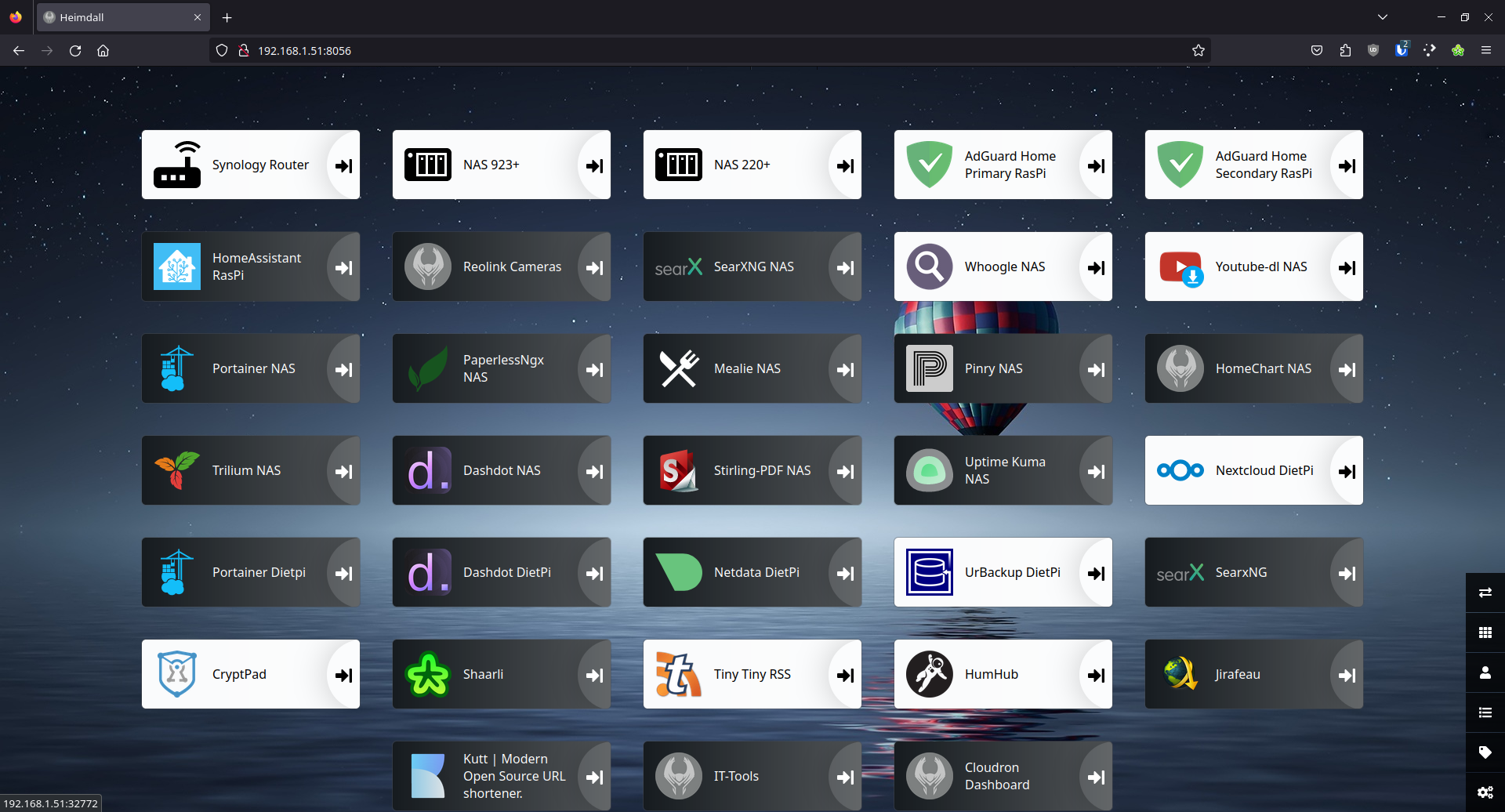Using IP and port to connect? Definitely not going far enough yet!
Selfhosted
A place to share alternatives to popular online services that can be self-hosted without giving up privacy or locking you into a service you don't control.
Rules:
-
Be civil: we're here to support and learn from one another. Insults won't be tolerated. Flame wars are frowned upon.
-
No spam posting.
-
Posts have to be centered around self-hosting. There are other communities for discussing hardware or home computing. If it's not obvious why your post topic revolves around selfhosting, please include details to make it clear.
-
Don't duplicate the full text of your blog or github here. Just post the link for folks to click.
-
Submission headline should match the article title (don’t cherry-pick information from the title to fit your agenda).
-
No trolling.
Resources:
- selfh.st Newsletter and index of selfhosted software and apps
- awesome-selfhosted software
- awesome-sysadmin resources
- Self-Hosted Podcast from Jupiter Broadcasting
Any issues on the community? Report it using the report flag.
Questions? DM the mods!
How else would I? Not exposing it to the WAN and with StarLink, VPN is the solution. Though not a network guy either.
Subdomains with traffic routed through a reverse proxy listening on 80 and 443 (HTTPS everything with certbot SSLs) with a dynamic DNS client updating your DNS provider whenever your IP address changes.
I don't think that works with Starlink (CGNAT)
IIRC you can use DNS challenge behind a CGNAT, but you still wouldn't be able to access the system remotely. But you could use Tailscale for that, or Headscale on your VPS. You could also put a wireguard server on your VPS.
Private DNS within your Lan and your choice of proxy to remap ports
Honestly if you haven't the time to troubleshoot issues you might struggle to keep all of those up and running
The NAS stuff has been running almost a year now. Even had enough time to migrate it from the 220 to the 923. I said I didn't have a lot of time, not no time. ;p
Why I haven't delved back into any persistent self-hosting yet.
I would recommend Tailscale for connecting to the home network. You could run it on each box if running it on the router is wonky.
Zerotier also works well and is more flexible in my experience
Looks cool dude. Have you tried using Traefik on docker? You can name your service like https:// homeassistant.thanatos instead of 192 .168.1.1:8080.
It's pretty cool and it can even handle SSL certs.
Would love an up-to-date tutorial on how to do this without a domain name. I don’t own one but would still much prefer to use https://jellyfin.myserver.home than http://192.168.1.200:8096.
I'll have to check this out. Any suggestions on where to start? Would this also solve the issue of some containers requiring ssl and domain?
I followed this guy's tutorial: https://www.youtube.com/watch?v=liV3c9m_OX8
You do need your own domain name but I got one on namecheap for like $15 per year. It's worth it.
You can go so much cheaper than that as well, I've had .xyz and .party domains for less than $2 per year with namecheap
Overboard? If anything, you haven't gone far enough
I had UrBackup running for 6 months+. It wasn't reliably backing things up, configuring it to be accessible via Internet is almost impossible, adding clienta is a hassle and the config isn't very user friendly.
Furthermore I got the inpression, that it's backups aren't reliable; restoring files without UrBackup might be impossible.
That's why I'm now back at a incremental rsync backup script. It's reliable, you can just restore things by copying them back via ssh and it uses a lot less space (!!!) than the UrBackup backups.
not familiar with rsync, got a copy or link for that script?
I used this one, with some modifications, like command line parameters to reuse it for different backup jobs.
I've packaged it into a little docker container that runs crond and runs the script every day for a few backup pairs.
I'm not sure if you expected to post a script or link and it didn't work or if it's error on my part.
Weird! It was late. This is what I use: https://blog.zazu.berlin/software/a-almost-perfect-rsync-over-ssh-backup-script.html
Man I love heimdall
You’ve gone overboard when you’ve had experience with most of the software on the awesome self hosting lists
Sure looks like the bare essentials to me.
What's that interface?
Ben phelp's homepage (you can find it on github)
Enjoy your validation, it is deserved. ;)
For VPN, PiVPN is super easy to setup and use. I dont even have a static IP with my ISP but it works like a charm with DynDNS, I use no-ip but there are plenty of options.
I actually went and messed with openvpn again and got it working great with the router.
TeamViewer is really nice when you're on the road a lot. That way if you need to hop in and change something, you can do it from pretty much anywhere.
TeamViewer is good until they decide its not personal use anymore. Better go for AnyDesk or even better RustDesk if you need remote desktop. But why not just wireguard or tailscale?
Or when the platform gets compromised and they refuse to admit it and blame the customers instead
Yup, if you just use a couple different IPs in a given time they will arbitrarily mark you as requiring a license.
Nah, use Mesh Central 2! It's free, you can self-host it and using a little agent you can connect to any machine from it via console or even via a desktop interface without bothering with VNC etc.
I like the TinyTinyRSS logo :P
